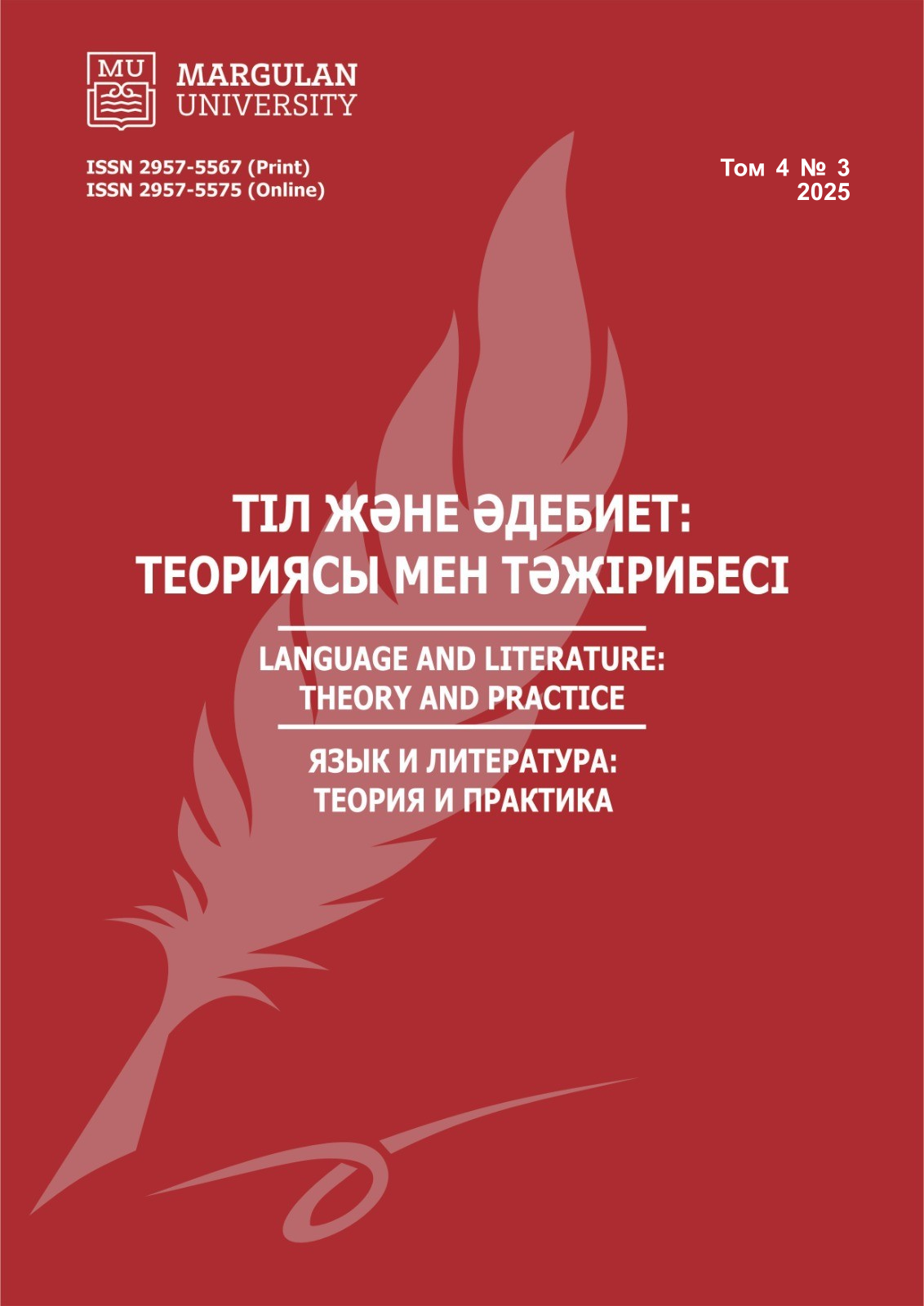THE PRAGMATIC PARADIGM IN LITERARY STUDIES: THEORETICAL ASPECTS AND NEW OPPORTUNITIES TO STUDY LITERARY TEXTS
DOI:
https://doi.org/10.52301/2957-5567-2025-4-3-55-66Keywords:
pragmatic literary theory, pragmatics of literary text, literary communication, text and meaning, pragmatic analysisAbstract
The article explores the fundamental aspects of the pragmatic theory of literature and its applicability in analyzing contemporary literary texts. In the context of shifting paradigms in literary theory, there is a growing need to reconsider classical approaches and introduce interdisciplinary methods. Pragmatic-literary theory, which emerged in the early 21st century, addresses this need by focusing on the communicative aspects of literature and the dynamic interaction between author, text, and reader. The study presents a methodological model for the pragmatic analysis of literary-works, emphasizing the integration of literary-pragmatics, narratology, and reader-response theory. This approach enables the identification of multilayered communicative relations and latent meanings within texts. The practical application of the model is demonstrated through analysis of selected contemporary Kazakh-literary works, revealing how pragmatic strategies influence textual interpretation. The research concludes that the pragmatic paradigm enriches literary analysis and contributes to a deeper understanding of author-reader interaction in modern literature.
Downloads
Published
How to Cite
Issue
Section
License
Copyright (c) 2025 А. Матаева, А. Алимбаев

This work is licensed under a Creative Commons Attribution-NonCommercial-NoDerivatives 4.0 International License.
https://creativecommons.org/licenses/by-nc/4.0/deed.en


